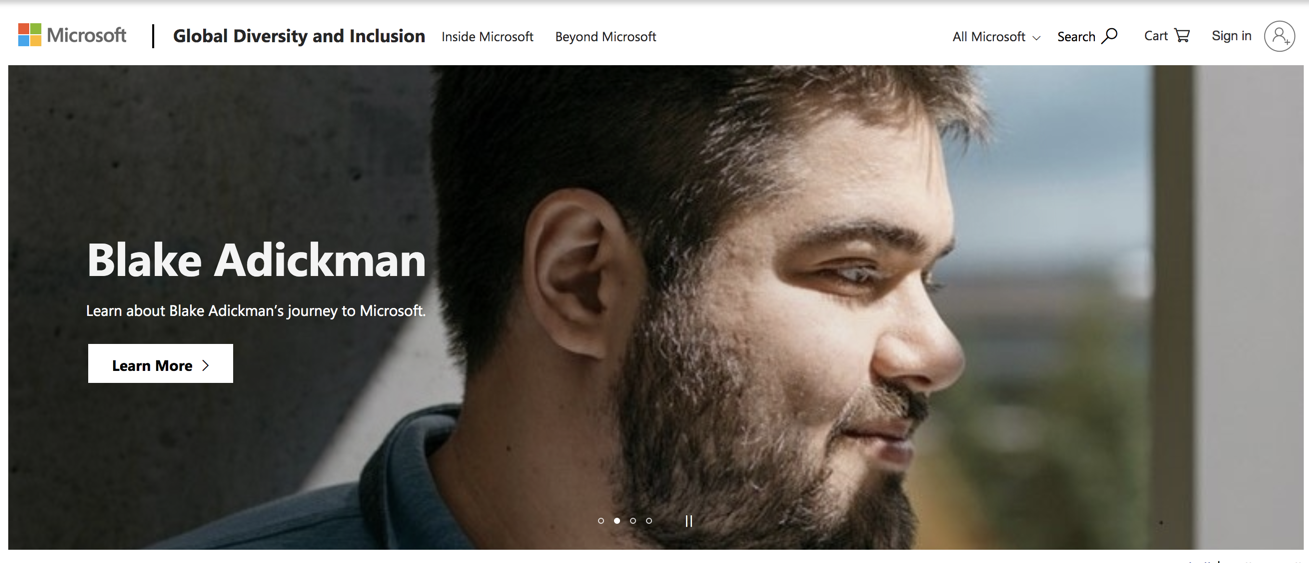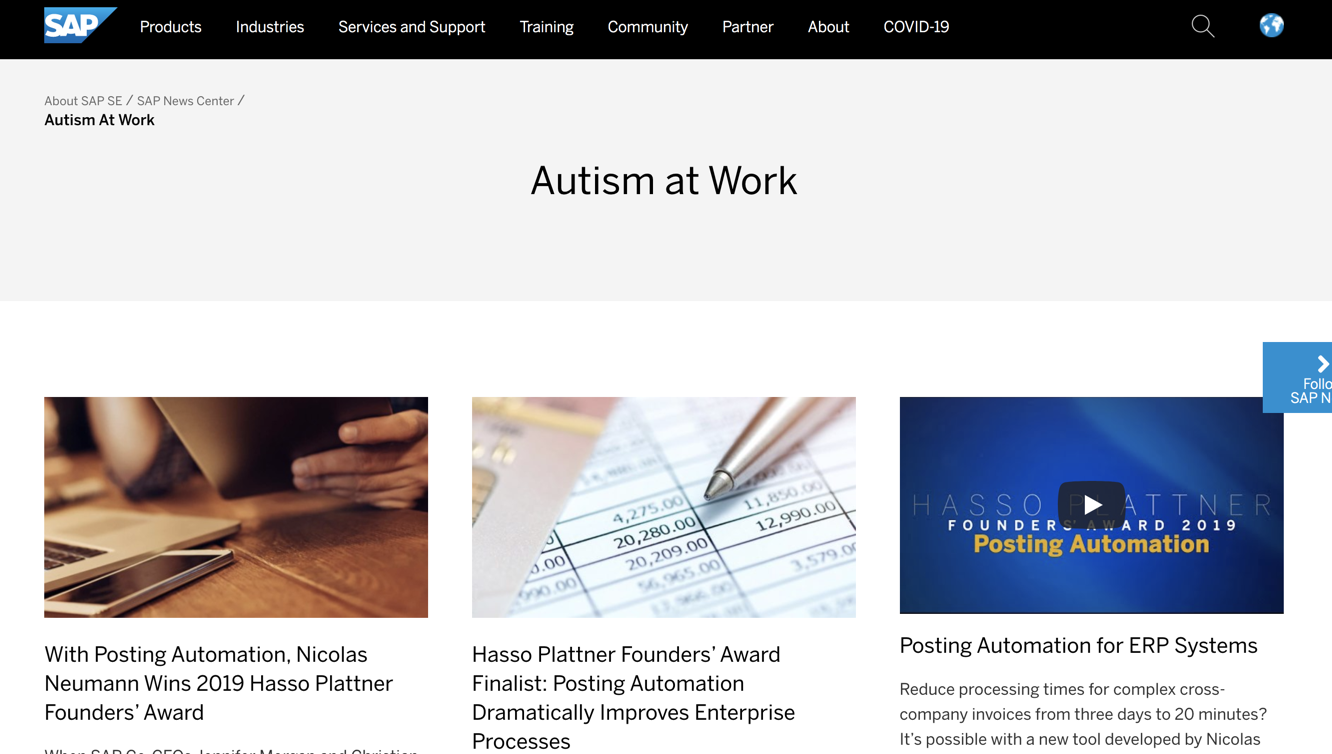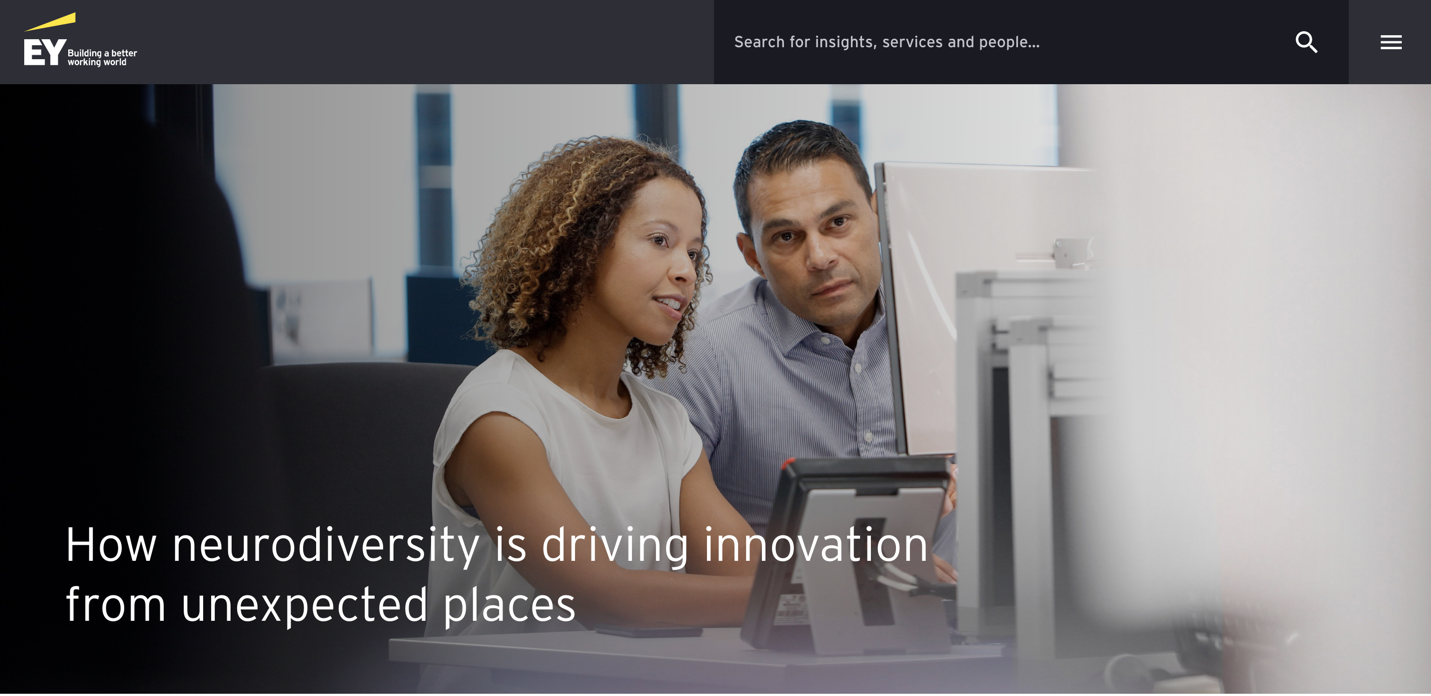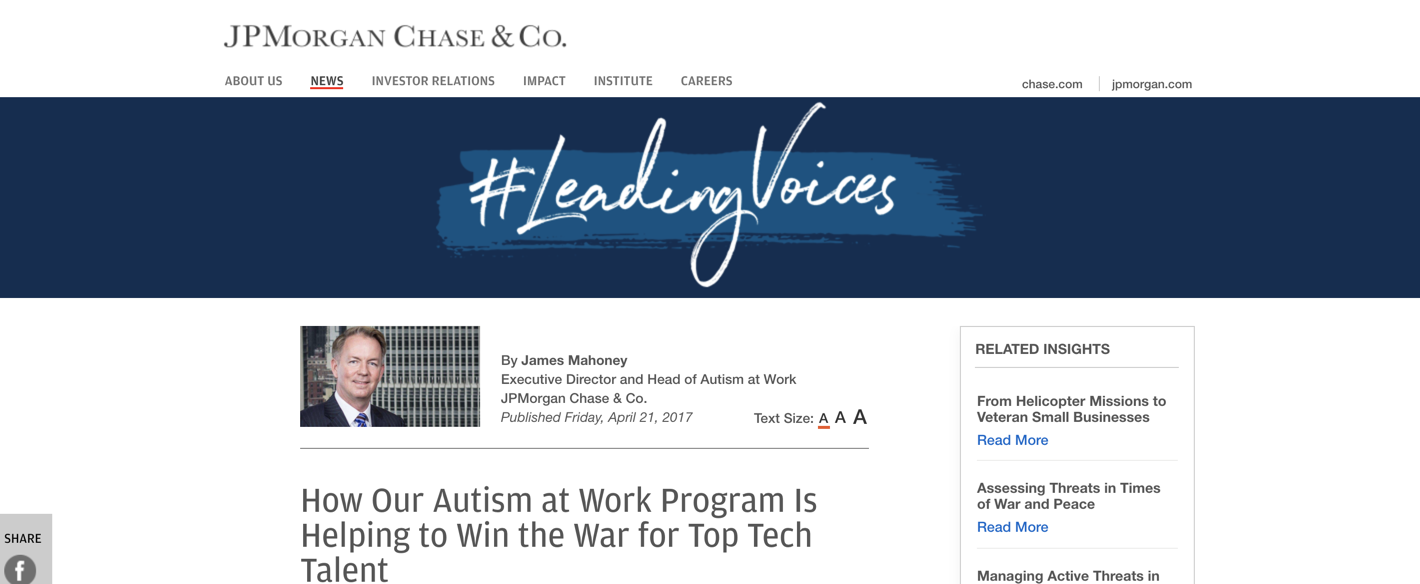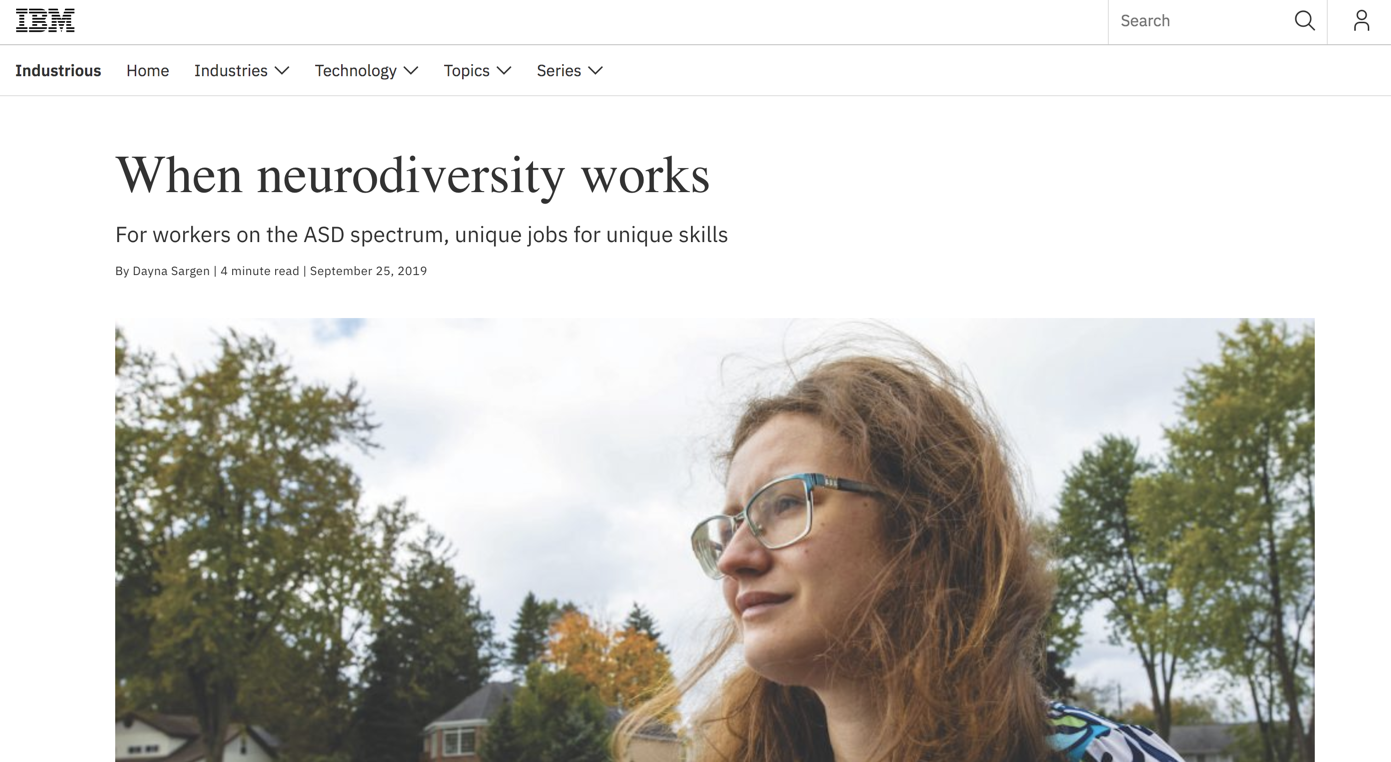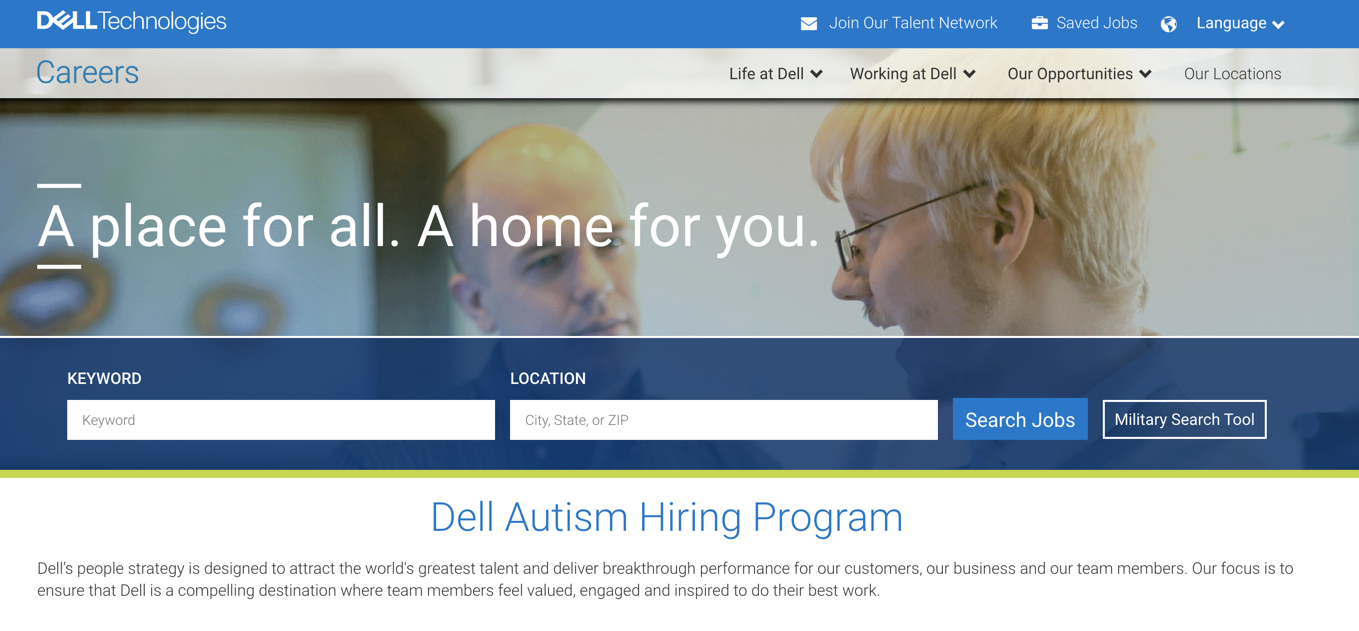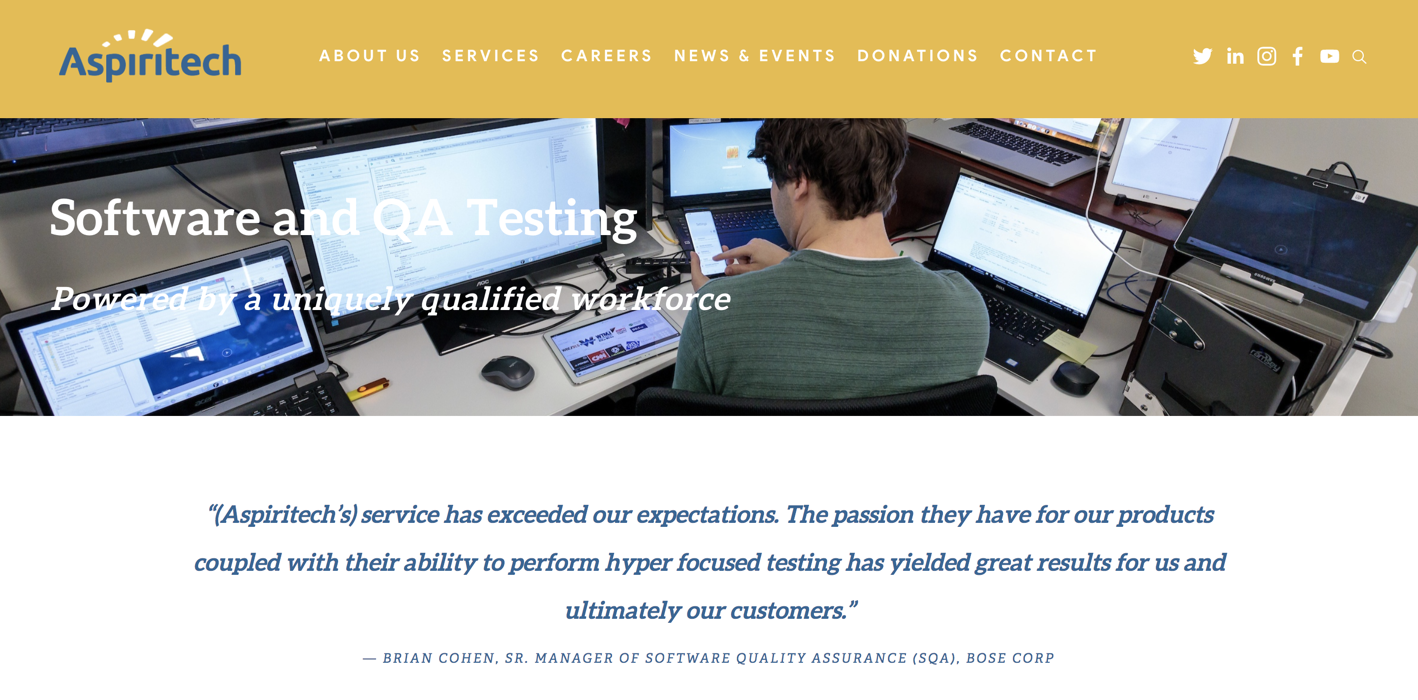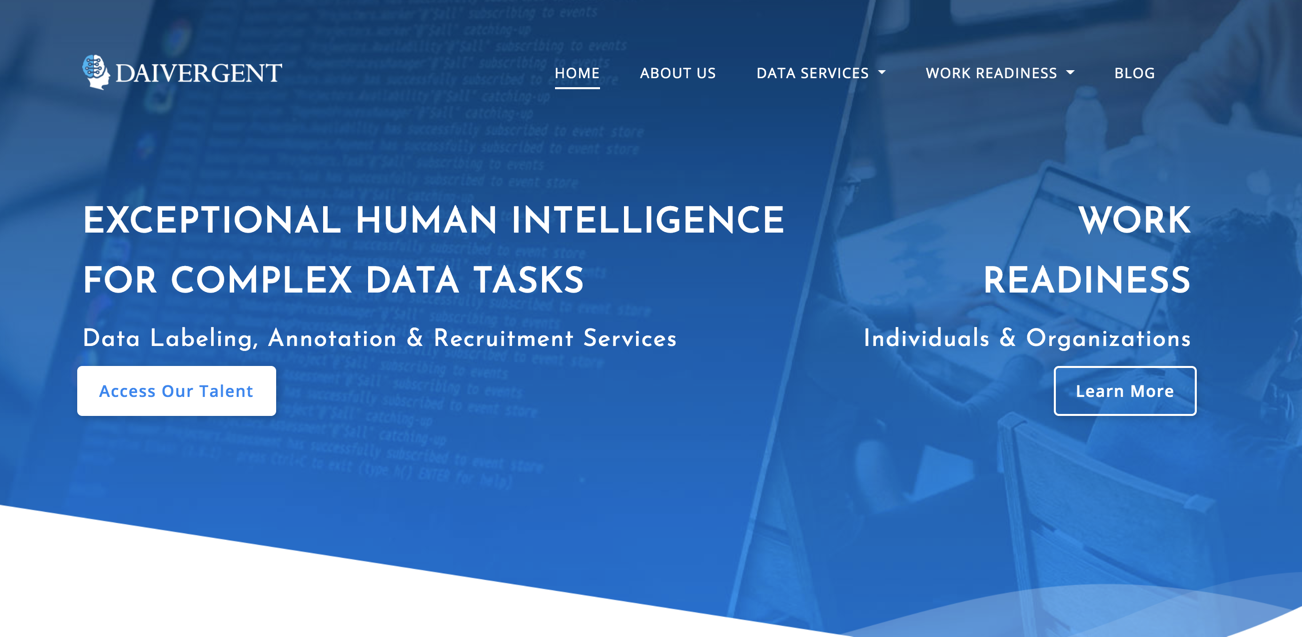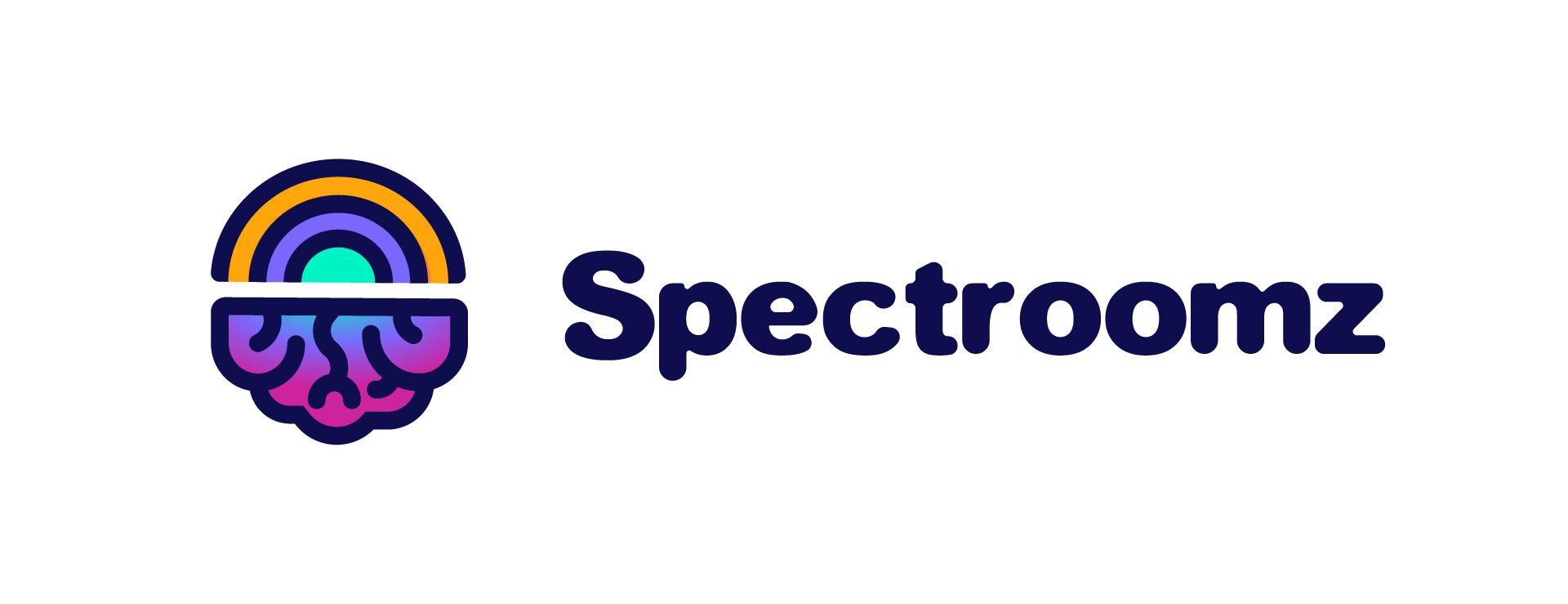What Does Autism Really Feel Like
By: Vanessa Blanchard
So what is it like to be autistic?
Autism presents in many ways but being misunderstood is one of the more common experiences we share.
Our neurological variations make us perceive the world differently than most, which means our behaviours and communications can be confusing.
We tend to think differently than those around us. We see more patterns, we noticed different types of details, and we tend to miss lots of other details, like social cues.
We tend to be trusting and honest, which makes us vulnerable to grifters.
Most importantly, we often don’t recognize or relate to social norms. This leads to a tremendous amount of discrimination by neurotypical folks, who default to dismissing us rather than working to understand us.
What is Sensory Processing Disorder?
Sensory Processing Disorder (SPD) is a neurological condition that means that our brains process sensory information differently. We tend to experience the world in a very heightened way. Our bodies take in so much sensory information that it’s often uncomfortable and overwhelming.
It’s like there’s no filter and no way to tone down the amount of information we take in and that can take a huge toll on our emotions, focus, and general functioning.
SPD is common in autism, but it can exist on its own or alongside other conditions like ADHD or PTSD. People often don’t acknowledge SPD as a valid issue faced by autistic kids and blame their emotional distress on bad behavior or bad parenting. It’s neither. Meltdowns are involuntary neurological events driven by sensory information overwhelming the amygdala.
What is synesthesia?
Synesthesia is a form of SPD where the senses get sort of jumbled together. Images or sounds might have tastes, tastes might have textures, or colors may have sounds. It ranges from difficult to impossible to detangle these senses, which can be distressing and overwhelming at times. It can also be pretty neat.
What To Do
Work with your autistic child to identify their sensory needs and learn how to meet them. Regulating their environments, providing sensory safe zones, and looking into options like mindfulness and medication can help.
What Not to Do
Don’t punish your child for expressing distress over their sensory overwhelm. Our distress can be extreme and meltdowns are very painful experiences for us.
Don’t judge yourself or your parenting, either.
About the writer
I’m a writer, artist, and advocate who loves living in Maine among the trees and oceanside villages. I’m also autistic, ADHD, and PTSD. My education, both academic and personal, has centered around mental health and neurodevelopmental disabilities, as well as discrimination and the socioeconomic consequences of living disabled in America. I work to plant seeds and spread ideas through my writing. You can find me on Twitter @ladysnessa.
What Not to Do with an Autistic Child - the “inside information” guide
Intro
Raising an autistic child can be confusing.
There are so many ways that their behaviours and needs are unique to what we’re told standard development looks like. It’s hard knowing what to do and what not to do when raising autistic kids.
Information circulating outside the autistic community can be conflicted, riddled with judgements and stigmas, and ultimately far less helpful than it hopes to be.
To combat this, many autistic adults have dedicated their time and energy to sharing their experiences so that parents, kids, and other autistic adults can have help understanding and meeting our unique needs.
Parents can find a lot of comfort and information from other autistic adults.
Here’s a compilation of some of the most commonly asked questions or issues raised by parents with an autistic child, as well as some general advice about what to do and what not to do on each topic.
Since it is written by an autistic adult, you can think of it as ten things every child with autism wishes you knew.
Contents
What is it Like to be Autistic
Is Autism a Disability
How to Handle an Autistic Child
How to Calm Down an Autistic Child
How to Deal with an Aggressive Autistic Child
How to Discipline an Autistic Child
How to Teach an Autistic Child
How to Teach an Autistic Child to Talk
How to Get an Autistic Child to Eat
How to Get an Autistic Child to Sleep
Keep Asking Autistics
Keep Asking Autistics Specifically About Your Child
These ideas are merely the tip of the iceberg when it comes to understanding and approaching your autistic child’s needs.
My biggest recommendation is that you keep reaching out to actually autistic folks to learn more.
So many of the researchers and medical professionals are neurotypical with very little insight into an autistic mind. They think they know, but they very often don’t, especially when it comes to the nuances involved in understanding one particular child.
Autistic people will tell you that every autistic person is different and will work with you to help you have a compassionate understanding of your child, one not rooted in discipline and rejection.
About me
I’m a writer, artist, and advocate who loves living in Maine among the trees and oceanside villages. I’m also autistic, ADHD, and PTSD. My education, both academic and personal, has centered around mental health and neurodevelopmental disabilities, as well as discrimination and the socioeconomic consequences of living disabled in America. I work to plant seeds and spread ideas through my writing. You can find me on Twitter @ladysnessa.
These 10 Companies Hire Autistic Adults
In this post, I’ll share 10 companies that hire autistic adults. I’ll also mention which companies offer work from home jobs since many autistic people say they prefer to work from home, even in the post COVID era. There are additional companies that offer jobs for autistic people but are more local in nature.
Intro
According to the CDC there are almost 5.5 million autistic adults in the US, from which 44% have average to above-average intelligence.
And yet, 85% of autistic adults are either unemployed or underemployed (underemployed = earn less than what they should).
Studies show that employers who were knowledgeable about autism (that doesn’t really require an academic degree, it is rather intuitive and easy to learn), as well as enabled some adjustment to the hiring process and work environment such as more breaks flexibility, sensory-related adjustments and more, lead to successful employment of autistic adults. It’s even easier with today’s remote job culture.
Autistic adults also emphasize the importance of adjustments in the work environment. Working from home, for example, is more important for many of them than the actual job itself.
You can learn more about how autistic-friendly your company is using this tool, and see how easy it could be to become one.
While most autistic-friendly employers listed below are big corporations, it does not mean a lot of resources are required to hire your first autistic employee. There is definitely a lean way for small and medium businesses to hire their first autistic employee.
Meanwhile, we have assembled some well-known employers who hire autistic adults.
1) Microsoft
Type of roles:
Software engineers, data scientists, service engineers, marketing and finance.
Hiring process:
Phone interview, technical skills assessment, one-week in-person event, 3 interviews. Learn more about the hiring process here.
Remote option:
Doesn’t look like they have one.
2) SAP
Type of roles:
A broad range of roles (21) including engineering, human resource, and project management.
Hiring process:
Qualifying phone interview (phone or Skype interview), intro the SAP’s autism @ work program, one-week in-person soft skills training, 5 weeks autism @ work readiness, 45-minute interviews.
Remote option:
Doesn’t look like they have one.
3) E&Y
Type of roles:
Data analytics, quantitative analysis, robotics, and cyber security.
Hiring process:
One week virtual technical exercise, one-week in-person training.
Remote option:
Doesn’t look like they have one.
Type of roles:
Broad. Bankers, data scientists, fraud analysts, compliance analysts and more.
Hiring process:
Phone call as well as in-person meet and greet, 3 weeks soft skills training done by vendors and interviews with breaks.
Remote option:
Doesn’t look like they have one.
5) IBM
Type of roles:
Looks like QA and software testing.
Hiring process:
Not clear enough. They have partnered with Specialistserne for some the training and hiring process.
Remote option:
Doesn’t look like they have one.
6) Dell
Type of roles:
They have a summer paid internship in cyber-security, data analytics, IT, Audit / SOX Compliance, QE Engineering, Software Engineering, Supply Chain. In addition, there are full-time roles, probably in these domains as well.
Hiring process:
There is an initial screening process (they don’t mention the exact process, but it looks like it is managed by either HMEA (if you are in MA) or the Arc (if you are in Austin). Following the initial screening, there are two weeks skill assessments.
Remote option:
No.
7) Ultranauts
Provides onshore quality assurance and engineering services. According to them, 70% of their employees are neurodivergent.
Type of roles:
QA and software testing.
Hiring process:
Not clear enough. It looks like the process starters with a standard form submission.
Remote option:
Yes, there are remote options.
8) Aspiritech
A QA and software testing company employing autistic adults.
Type of roles:
QA and software testing.
Hiring process:
The application process starts with a simple form. If accepted, 2 weeks training takes place in Highland Park, Illinois, or Chicago’s West Loop.
Remote option:
No.
9) Daivergent
A startup that provides data labeling solutions for computer vision and AI/ML products through its pool of data specialists on the autism spectrum.
Type of roles:
Data labeling and annotations.
Hiring process:
There is screening assessment, qualifications task and onboarding. All online.
Remote option:
Yes
and…
10) Spectroomz
Spectroomz is a platform dedicated to remote (work from home) jobs for autistic adults. Companies can post SEO (search engine optimization) projects and autistic adults who took Spectroomz’s SEO online course are hired remotely to do these jobs. Peer5 is one company that hired Spectroomz for its SEO needs. In addition, Spectroomz sends other types of roles in its weekly newsletter.
Type of roles:
SEO, writers, designers, QA, admin support, developers.
Hiring process:
In order to receive SEO job opportunities, you’ll need to complete Spectroomz’s SEO online course.
Remote option:
Spectroomz only provides remote job opportunities.
6 remote (work from home) SEO-related jobs for autistic adults - this quiz will help you choose.
The 32 remote jobs for autistic people quiz has helped many autistics and Aspergers adults to learn what kind of work from home jobs are a good fit for them.
Spectroomz has recently focused around SEO (Search Engine Optimization = getting sites ranked high on Google), an $80 Billion industry. Anyone can take the SEO training and join.
There are different SEO roles a freelancer can do from home, and in order to help people with autism understand what’s the best role for them, we have prepared a quiz.
Choosing the best remote job for you - the quiz
There are 6 roles below and a quiz that will help you choose which one is most relevant to you.
The tool doesn’t take into account your interest and qualifications (our SEO course/training can help with that). It focuses on the nature of work. If you have special qualifications, make sure to take it into account
How it works
Answer 4 questions below and get the score;
Check below the list of roles based on your score;
Optional: submit your details to become a freelancer on Spectroomz.
Step 1 - The autistic SEO remote job quiz
Step 2 - Check to which category you belong and choose the right job for you
Group A (score is under or equal to 5.5):
SEO writer - if you have writing skills, being an SEO writer is in the heart of the SEO process. It means writing content and using the right keywords that will help companies to rank high on Google.
Ongoing content optimizations - There is an ongoing process of optimizing content even after it was officially posted (changing the titles, adding keywords and much more). This is a very analytical role.
Group B (score 5.6-8):
Keyword research - Keyword research is the process of making a list of keywords and phrases your potential clients are searching for, and based on that list, generating the content that will drive them to your site. This is an analytical role (and super interesting).
Technical SEO - If you have a technical orientation (not necessarily a coder) this might be for you. An example for a task under this role would be to plan the URL structure of a website.
Group C (score 8-10):
Backlink building - getting other sites to link to your site is part of the SEO process. This requires marketing orientation.
Email finder - part of the backlink building process is to find emails of other websites owners. It’s a repetitive work.
10 Autistic Phrases Explained: The Meaning of Words Like Allistic and Neurodivergent
📣 New for employers - Learn how to hire and keep autistic employees
By: Vanessa Blanchard
Are you new to the autism community? Maybe your child has been diagnosed, or you’re finding out about yourself as an adult. You’re curious to learn more, but now there are all these new terms floating about. Like, what does it mean to be allistic?
What’s the difference between neurodivergence and neurodiversity? What does NT and ND stand for?
Well fret not! You’ve stumbled upon a wonderful resource. Here you’ll find the definitions of 10 of the most common terms used in the autistic community and how they relate to key issues faced by autistic people.
1) Allistic -
Allistic simply means a non autistic person.
2) Neurotypical -
Someone who is not neurodivergent, often called an NT for short.
Sometimes autistic people will use terms like “allistic” and “NT” in derogatory ways. Most autistic folks have extensive experience with misunderstandings and social traumas after navigating an NT world.
If you’re an allistic looking to be an ally, make sure to listen to the voices of actually autistic people, even if it makes you uncomfortable.
Especially if it makes you uncomfortable.
For example, most autistic people will tell you to avoid Autism Speaks because it is a hate group. Many parents or support folk find that uncomfortable because Autism Speaks is such a prominent organization.
3) Neurodivergent -
Someone who is neurodivergent has some sort of variation to their neurology or overall brain structure. This is an umbrella term that can apply to a range of issues including:
Autism (see best jobs for autistic adults)
ADHD (see best jobs for people with ADHD)
PTSD
Alzheimers or dementia
Epilepsy
Tourette's syndrome
Traumatic brain injuries (or TBIs)
Blindness
Deafness
Etc.
ND is short for Neurodivergent.
4) Neurodiverse -
Often used interchangeably with “neurodivergent” this term technically applies to all people, including allistics. Neurodiversity is a collection of diverse neurotypes, including the “norm,” whereas neurodivergent specifically refers to the ways a brain could diverge from what is decided as normal function.
5) Autism -
Autism is a developmental disorder that impacts the nervous system. It is often referred to as a spectrum disorder because it’s complex and presents itself in many different ways.
Common ways include impaired or delayed motor, speech, and occupational skills as well as struggles in developing social and emotional regulation skills.
Most importantly, while this is a chronic condition, it is not a disease and cannot be cured.
There are many other conditions that can co-occur with autism, like:
ADHD
Ehler-Danlos Syndrome
PTSD
Epilepsy
OCD
and addiction
Autism is not an intellectual disorder, although they can co-occur.
6) Asperger Syndrome-
An outdated term often used to identify a less severe, or more high functioning, version of autism. This term is still used in some diagnostic circles.
Within the autistic community, it is a highly divisive and controversial term. Hans Asperger, whose work helped bring autism as a condition to public awareness, was also known to have ties with Nazis guilty of experimenting on and killing disabled children during WWII.
The autistic history contains inhumane violence, murder, and the threat of eugenics, all in the name of curing children, so many advocate that the term Aspergers should be abolished in all medical and social arenas.
7) Person-first language vs Identity-first language -
Person-first language emphasizes that the diagnosis doesn’t define the person, the person has the diagnosis (a person with autism).
Identity-first language emphasizes the idea that the condition is inseparable from the person (autistic person, disabled person, blind person).
The vast majority of the autistic community has agreed that they view autism as inseparable from who they are. We prefer identity-first language in regards to autism.
We leave room for members of our community to express person-first language, but ask that allistic allies respect the majority and use identity-first phrasing.
This is because of a long history of erasure of the autistic identity under the disease model. Our cultural understanding of autism stems from autistic distress rather than acceptance and support.
8) Functioning Labels -
There is a tendency to split autistic folks into two categories: high and low functioning (defined below). There is no credible diagnostic use for these terms, but they help start discussions about ableism and stigmas surrounding public awareness of autism.
Low Functioning- On its face, the term “low functioning” seems to refer to autistic folks who have higher support needs than their peers. However, this term is largely applied to people who are non-speaking, and is also conflated with intellectual disabilities.
While intellectual disabilities can occur, it is best not to assume that a non-speaking or cognitively impaired person doesn’t think, understand, or have something to say.
High Functioning - This term is usually given to autistics who can speak and appear to have lower support needs.
These assumptions erase the support needs of autistic individuals across the board.
9) Late diagnosed/self diagnosed -
It’s very common for people to live well into adulthood before they learn they are autistic. Often, people will seek a diagnosis later in life to have answers, but getting a diagnosis has many barriers.
So, the autism community welcomes people who have self-diagnosed as autistic, but don’t have the resources or support to seek a formal diagnosis.
Some within the community argue that self-diagnosis isn’t valid. They aren’t the majority and they aren’t correct.
10) Applied Behavioral Analysis -
Called ABA for short, this is the predominant form of “therapy” for autistic children that is pushed by many professionals/institutions that use the disease model of thinking for autism.
Autistic folks don’t agree with the disease model of thinking for autism.
Autistic children and adults who have endured this “therapy” report that it is a very abusive and ineffective way of dealing with autistic struggles. Research suggests that exposure to ABA results in increased rates of PTSD.
Is Autism a Disability?
Yes and no.
Autism can be disabling in many ways, and this will be different for everyone. Autism is lifelong, and that includes the disabling parts.
However, proper social and systemic support can help ensure that we have better quality of life and more independence and stability as adults. Many of us will not be able to work traditionally, but most of us are eager to contribute to the world in some meaningful way, maybe through art or philosophy, invention or academia. We have a lot of entrepreneurs in our midst.
We’re a diverse and capable crew when we’re allowed to be authentic and included.
Is Autism Curable?
No. It is our brains, how they’re built and wired. There are many ways to address specific struggles. A few examples include:
Alternative speech tools
Patient practice with motor or life skill development.
Therapy to help with emotional dysregulation and support animals to help with meltdowns or co-occurring needs.
Autistic-friendly team building exercises, like gaming or interest clubs, are super useful in social development.
Support with job training and advocacy during employment would increase autonomy in adulthood.
The autistic community prefers an approach that assumes capability and an environment that allows us to be there as our authentic selves. Allistics who mean to be allies can help us by elevating our voices and helping us build systems of support up around our community.





